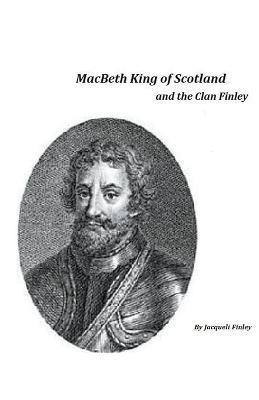Per the New World Encyclopedia, Mac Bethad mac Findlaích (Modern Gaelic: MacBheatha mac Fhionnlaigh), (died August 15, 1057), was King of Scots (also known as the King of Alba) from 1040 until his death. He is best known as the subject of William Shakespeare's tragedy Macbeth and the many works it has inspired, although the play is historically inaccurate. Shakespeare' Macbeth immortalized the Scottish king but as a dark, tormented character driven all but insane by his own foul deed, the crime of regicide. Separating the man from the myth is a challenge for any historian. What can be deduced is that he is much more likely to have slain Duncan, his half-brother and predecessor, in battle than to have murdered him. He may well be credited with forging Alba into a viable state, transforming what had been a loose clan confederacy into a nation where people recognized common ties and loyalties across the sparsely populated and often inaccessible hills and vales. As did later Scottish kings, Macbeth appears to have cleverly positioned Scotland between her more powerful neighbors yet he did not isolate Scotland either. He encouraged trade, improved the kingdom's infrastructure, entered a political alliance with the Holy Roman Empire and strengthened the Church by negotiating a direct relationship with Rome. Macbeth was the son of Findláech mac Ruaidrí, Mormaer, or King, of Moray. Many suggest that MacBeth died without issue or sons, but new evidence and research shows us that MacBeth did have sons that survived from which many descendants derive and live amongst us today. MACBETH's death ended a dynasty which began with the earliest foundations of Ireland and Scotland, as we have already seen. At the time of his death, his children were young, so the Clan FIONNLAGH placed his stepson, LULACH, on the throne. However, he reigned only 6 months, being defeated and slain at Eske in Strathbogie by the Saxon invaders and the rebellious adherents of Malcolm CANMORE. After LULACH, no other member of the Clan FIONNLAGH has been on the throne of Scotland to the present day. Members of the clan became hunted outlaws, long before religious persecution drove them from the British Isles.
Because of this the Clan FIONNLAGH took on the name of the Clan FARQUHARSON, so named because of the Farquhar SHAW of Rothiemurchus. WOOD and FRANCE state: "In 1236 in the Braes of Mar at the head of Aberdeenshire, Scotland, there was a certain chief named FEARCHAR, son of FARQUHAR, who wa














